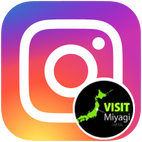|
by Mary Kate Greening
As I’m sure we are all aware, the world is currently ravaged by the Novel Coronavirus 2019 (COVID-19, Coronavirus; JPN: 新型コロナウイルス shingata koronauirusu, コロナ korona). Thankfully, Japan is in a much better state than the rest of the world, due in part to early governmental interference and strict adherence to countermeasures like wearing masks and social distancing (generally speaking). As of writing this on August 30th, 2020, the Abe Administration had indicated that they have no intention of calling another state of emergency in place, even though cases in Japan as a whole have begun to rise again. Even though Abe is now resigning, this doesn’t seem like it will change. In fact, starting in August 2020, Japan began their “Go-To” campaign. It aims to encourage domestic travel in an attempt to generate revenue lost from the virus and the postponement of the Olympics. This campaign includes discounts and vouchers for hotels and trains that are set to increase in September. We also see relaxed attitudes toward the previously mentioned countermeasures, especially in tourist-heavy areas. As for us in Miyagi, we have had around 220 cases total, with 2 deaths. The cases themselves, as well as the resulting clusters, are centered mostly in the Sendai area (as it is the largest city in the Tohoku region and serves as a gateway to the north for both domestic and international travelers). There have been around 45 cases in the more inaka areas of the prefecture. Testing is not very widespread and is often unavailable to those not showing symptoms, so we can assume to a reasonable extent that the numbers may not show the whole picture. The prefectural government is presumably doing everything they can to have an accurate count, but it is pretty difficult to be certain. COVID can be spread by both asymptomatic and symptomatic people, so just because no one is coughing doesn’t mean you’re out of danger. Prevention We have by and large avoided the brunt of the pandemic, but that doesn’t mean we can be lax about prevention measures. First things first, download the COCOA app. It’s in English and tracks your contact with other people on the app to see where clusters form. The most obvious preventative measure is to avoid unnecessary travel, especially to other prefectures, and especially especially to the Tokyo area. I know many of us joined JET because we thought we would be able to travel around Japan. Unfortunately, that is no longer the case. We ask that you please be cognizant of our standing as government workers (and thus derive our salaries from taxes), and reexamine any travel plans, even within the prefecture. We stick out anyway; it is not a great look to be walking around mask-free anywhere, and for those of us with cars, having Miyagi plates in a different prefecture raises some suspicion. If you must travel (or really need to get out of the house, which I can totally understand), try to go to outdoor areas that don’t see many crowds. Miyagi is home to many natural wonders and sights, many of which are virtually unknown to tourists. For ideas, check out our Area Guides, or ask around on MAJET socials! Aside from traveling, the most important steps you can take will be social distancing, wearing a mask, and washing your hands often. It may be worth your time to buy or make cloth masks, or carry around a personal hand sanitizer. If the teachers’ room’s windows are closed (and weather permits), ask if you can open them to get some airflow going. As English teachers, we know that the kids being able to see how our mouth moves is important for their pronunciation. Masks, well, obviously block that. See if you can find a face shield or those see-through masks if you need to, or get creative with PowerPoints, drawings, or videos. You can also use the obscurity to make phonics games! Recently, I've been reading out words that have commonly confused sounds (like "best" and "vest") and having my ES students guess which one I'm saying. It was hard at first, but they're getting a lot better! What to do if you (think) you have COVID If you think you may have contracted COVID-19 you are far better off talking to medical professionals than me, but hopefully I can steer you in the right direction. The main Miyagi Prefecture Corona webpage has a lot of information about current patients and their whereabouts leading up to a positive PCR test. If you think you may have come in contact with them and are showing symptoms, you should find a test. Even if you don’t think you’ve had contact with a patient, if you have a dry cough and a fever above 99.5ºF/37.5ºC, you should get tested. The call center has English support (via three-way phone interpretation) through MIA to ask any questions you may have. If you don't need the interpretation service, just call the number as usual. I don’t want to give you wrong information from here, so the call line will tell you the next steps. It will probably include testing, some time either in the hospital or outpatient services if positive, and a quarantine. Do NOT return to work until both cleared by a doctor and when you feel ready to return. The last thing you want to do is go to work sick, both for your sake and the students’ and teachers’. Monitoring Mental Health in a Pandemic Life is just about the furthest thing from “normal” right now, and there isn't really an end in sight. Your health, both physical and mental, always comes first. This pandemic has been an incredibly uncertain and stressful time, which is all the more reason to make sure you are taking care of yourself. From dealing with infections at school or even being sick yourself, to filling out WFH timesheets and dealing with maskne, everyone’s personal life has become more complicated. Even if you don’t have a diagnosed mental illness, it is important to make sure that you check in on your mental wellbeing from time to time (if you do, all the more reason to). For some of us, that means talking to counselors or therapists. For others, that means taking a mental health day or afternoon (if you’re willing to use nenkyuu/PTO) to re-center yourself. For creatives, there might seem like a push to finish projects or other work with all the newfound free time. Don’t let your annoying brain boss you around; there is no pressure to work faster or do more than normal, or even to keep your usual speed. Try to accept that things are different now, and give yourself time to adjust and adapt. Self-care is important, and while bubble baths and solo fancy dinners are really nice, help yourself out by keeping some degree of routine on days in. I’m not saying clean your entire house in one day, but maybe spend some time doing one load of laundry or vacuuming the living room. You’ll thank yourself later. MAJET Events MAJET may, unfortunately, have fewer in-person events this year, because we can’t risk having a large number of people in a small venue or on some kind of public transportation. This includes favorites like Yuki Matsuri and Bandai, though we are working hard to find some kind of replacement. We feel it would be irresponsible of us to have these large-scale events that often use public transportation and cross prefectural lines to get to. Like I mentioned above, we are working on alternatives! Hopefully, we’ll be able to hold smaller events that allow us to stay in touch. Aside from our online events, we’re looking into things like hiking and cabins for the fall. If you have any ideas or would like to host a small event, reach out to us! Stay tuned! That just about wraps up this guide! I know most of this is NOT new information, probably to the point where you can recite it from memory. I hope that this serves as a reminder that COVID has not gone away, and that it may be some time before life goes back to “normal.” If you have anything to add, please do in the comments below!
0 Comments
|
Got news?Got some news you want to share with everyone? E-mail us and we can post it here! Want to join?Send us your name and email, and we'll get back to you!
Archives
July 2021
Categories
All
|



